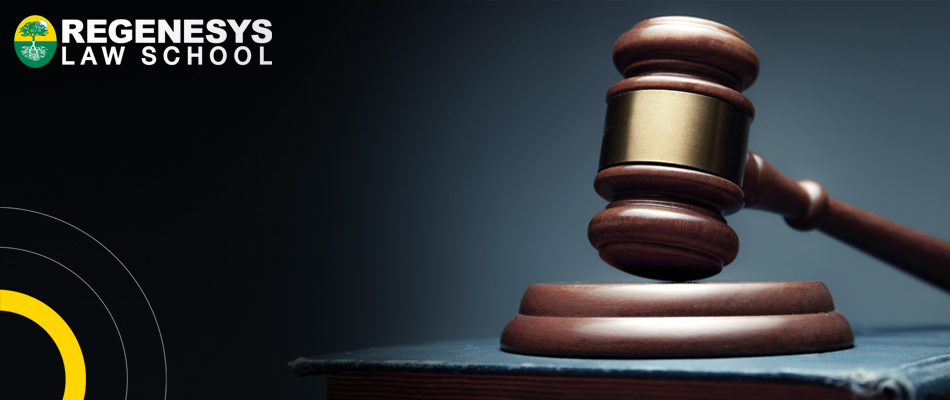Law School marks a significant milestone in a student’s educational and professional journey, showcasing a commitment to mastering the complexities of the legal field. Learning how to study law effectively is crucial for navigating rigorous coursework and intense competition, ultimately preparing students for the challenges of the legal profession. Mastering effective study techniques fosters better comprehension and performance while demanding discipline and adaptability.
In order to tackle this process successfully, attorneys in training need to bring along the most useful skills specific to law school. To succeed in your quest to be a competent and confident legal scholar, this article will equip you with the most integral advice.
Table of Contents

What is a Bachelor of Laws?
LLB stands for Bachelor of Laws, which is considered an entry-level legal degree offered among undergraduate programmes. It is the first step for individuals hopeful of partaking in the legal profession in various jurisdictions across the world. An LLB curriculum educates students in a vast array of legal topics, including contract law, criminal law, constitutional law, administrative law, property law, and so on.
Over the course of an LLB degree law studies, students get acquainted with the main legal principles, the nature of law, and their role in society. They acquire the logical, critical thinking, analytical reasoning, and problem-solving skills needed to navigate the complex nature of the legal profession. LLB programmes usually concentrate on legal research, writing skills, and oral advocacy, which is ensured through moot court competitions and mock trial activities.
All in all, the LLB degree is an excellent preparation for those hoping to become lawyers, engage in private practice, work for the government, start or advance their careers in corporate law, pursue public interest law, engage in academia, or change learning environments in any other legal field.
Read on Is LLB Valuable in South Africa? Here’s What You Need to Know
Is LLB Law Difficult?
Studying for an LLB is both rewarding and demanding. The degree is not necessarily “difficult” in the sense of being unachievable, but it does require a high level of commitment, discipline, and consistent effort. Law students are expected to read extensively, analyse complex legal texts, and apply principles to practical scenarios. Unlike subjects that rely heavily on memorisation, law demands strong critical thinking, problem-solving, and interpretation skills.
Many students find the workload challenging because it involves a balance of coursework, assignments, research, and sometimes moots or mock trials. However, with proper time management, effective study strategies, and support from lecturers or peers, the LLB is entirely manageable. The key is to treat it as a marathon rather than a sprint – steady progress often leads to success.
Read more on, LLB Career Advantages: Benefits of Holding an LLB Degree
How To Study Law Effectively?
Legal education can be very challenging, particularly since it requires writing skills and time management, building professional relations, and critical thinking abilities. These pillars play a vital role in academic achievement and legal career prosperity. Let’s learn about key factors to consider while pursuing a Bachelor of Laws degree.
1. Effective Planning:
To use your time effectively, you must list and manage your tasks and commitments as systematically as possible. To keep on track, try planning assignments, study sessions, and extracurricular activities using tools like planners or digital schedulers. Combine short-term targets with long-term objectives to establish consistency in long-term planning.
2. Reading Ahead:
Keep your reading progress above average to improve your comprehension and avoid lagging behind. By prior knowledge of the materials that will be taught, you can significantly reduce stress and prepare well for classes and assignments.
3. Independent Outlining:
Develop your own outlines, which will assist you in understanding and zeroing in on subjects requiring more attention. Refrain from depending on template outlines because developing your own plan fuels your understanding of complex legal theories.
4. Weekly Memorisation:
Develop a memorisation routine each week to remember the concepts in depth. Value the important lesson of studying consistently rather than undergoing a hasty and last-minute rush to attain better examination results and the ability to apply class knowledge to real-life situations.
5. Active Class Participation:
Regular class attendance and active participation will also contribute to your success in the programme. Being prepared before class improves the quality of your learning experience during lectures and generates productive communication with lecturers and peer group members.
6. Seeking Clarification:
If you have any questions, do not hesitate to seek assistance and guidance from professors and mentors. Utilise class hours and academic support resources to strengthen your understanding of law fundamentals.
7. Practice for Proficiency:
Frequently simulate the implementation of the legal knowledge by passing exams, writing tasks and arguments. Utilise existing resources and referred services to improve your use of skills and ability to perform at the top of your game.
8. Utilising Free Resources:
Leverage the wide variety of free services the campus provides to allow you to flourish academically and in your profession. Take advantage of panels, internships, libraries and capstone projects. Participate in these activities to enhance your experience of legal studies.
9. Maintaining Perspective:
Welcome the challenges of the Bachelor of Law degree by keeping a positive mindset and a determination for individual progress. Acknowledge that errors are part of life experience, so don’t lessen your attention from long-term objectives you may want to achieve.
10. Achieving Balance:
Make efforts to ensure a balance between academic needs and personal health. Devote yourself to self-care and nurture personal connections with your friends and family to keep your legal studies enriching and fulfilling. Find time for yourself to have meaningful interactions with your professors and peers.

Tips To Study Law Effectively
Here are some tips to balance your studies and work while pursuing your LLB:
1. Effective Planning:
- Break tasks down into smaller steps.
- Prioritise based on deadlines.
- Keep reviewing and adapting your plan as needed.
2. Reading Ahead:
- Browse through the material for a general overview.
- Make notes of the main points.
- Relate the newly discussed topic to the topics you dealt with earlier.
3. Independent Outlining:
- Organise outlines by topic.
- Use different formats, such as pictures, to express your thoughts.
- Review and update regularly.
4. Weekly Memorisation:
- Break topics into smaller sections for easy memorisation.
- Try different memory retention techniques.
- Test yourself regularly.
5. Active Class Participation:
- Come prepared with questions.
- Engage in group discussions.
- Take notes during classes to help you stay focused.
6. Seeking Clarification:
- Do not be afraid to ask questions.
- Form study groups.
- Apply the use of online forums for support.
7. Practice for Proficiency:
- Prepare with practice exams.
- Do regular writing exercises.
- Participate in moot court or mock trials.
8. Utilising Free Resources:
- Attend workshops or seminars.
- Use online resources.
- Network with alumni or professionals who can provide you with knowledge and experience.
9. Maintaining Perspective:
- Consider challenges as a part of the process of personal growth.
- Celebrate achievements.
- Seek support when needed.
10. Achieving Balance:
- Take regular breaks.
- Set time limits for studies and relaxations.
- Communicate with friends and relatives.

Conclusion: How To Study Law Effectively
Walking the path in your Bachelor of Laws degree comes to its fulfilment and calls for overcoming difficulties, growing and succeeding. To succeed in LLB, candidates must develop effective study habits: read, engage, ask, practice, and use resources while maintaining balance and gaining perspective. This thought process not only promotes academic efficiency but also brings the focus on the skills, resilience and well-being required for a successful career in law.
Are you ready to leap into the world of law? Explore the Bachelor of Laws (LLB) degree at Regenesys Law School and carve your path to success today!
FAQs on How To Study Law Effectively?
What is the best way to approach studying law in South Africa?
Focus on active reading, comprehensive note-taking, and applying the law through case studies and practical examples. Develop a consistent study schedule to stay on top of coursework and case law.
How do I manage the large amount of reading required for law school?
Break down reading assignments into manageable chunks. Prioritize essential readings, make summaries, and focus on understanding key legal principles and cases.
What resources are available to help me study law effectively?
Utilize textbooks, legal journals, and online legal databases like Juta Law and Sabinet. Additionally, past exam papers and legal study guides can be valuable tools.
How important is it to form study groups in law school?
Study groups can be highly beneficial for discussing complex legal issues, sharing insights, and clarifying difficult concepts. Group study also encourages peer learning and collaboration.
What skills are essential for succeeding in law school?
Critical thinking, legal writing, time management, and research skills are essential. Developing analytical skills to interpret case law and statutes is also key to success in law school.
How do I prepare for law exams effectively?
Start by reviewing past exam papers, create outlines for important legal topics, and practice writing essays and problem-solving questions. Focus on applying the law to hypothetical situations.
How can I stay updated on legal developments in South Africa?
Subscribe to legal newsletters, attend seminars, and follow reputable legal news platforms. Keeping up with new legislation and court rulings is crucial for staying current.
What role does practical experience play in studying law?
Gaining practical experience through internships, clerkships, or volunteering helps apply theoretical knowledge in real-life scenarios, improving your understanding of the law.
How do I improve my legal writing skills?
Practice writing legal briefs, case summaries, and essays regularly. Focus on clear, concise writing while accurately applying legal principles and case law to support your arguments.
How do I manage my time effectively while studying law?
Develop a structured study plan that allocates time for reading, assignments, and revision. Balance your schedule to avoid burnout and stay consistent with your study efforts.







